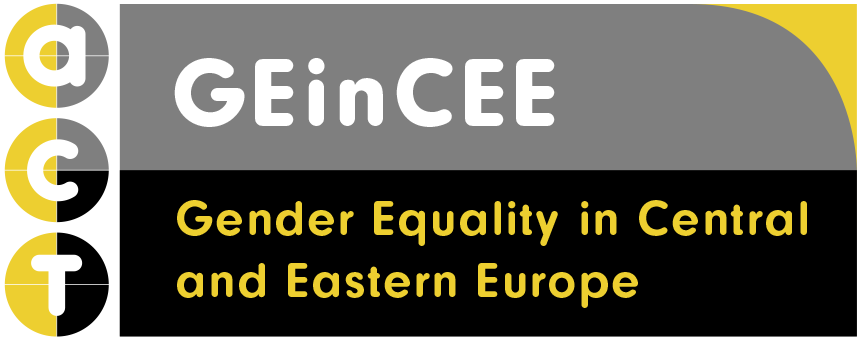
In a series of posts we present the current developments in gender equality in the GEinCEE CoP’s member organisatons. Read a post written by Rūta Ruolytė-Verschoore and Aurelija Novelskeite.

Why is the participation of the Vilnius University in activities of Community of practice on Gender Equality in Central and Eastern Europe so important for us?
The University of Vilnius (VU), one of the oldest and most famous establishments of higher education in Eastern and Central Europe, was founded in 1579. It is situated in the capital of Lithuania – Vilnius. Also, it is the biggest university in the country, gathering more than 20 000 students and 5 000 staff-members. Vilnius university is a classical university, last year (2019) celebrated it‘s 440 birthday. There are 14 faculties in the University: Business School, Faculty of Chemistry and Geosciences, Faculty of Communication, Faculty of Economics and Business Administration, Faculty of History, Kaunas Faculty, Faculty of Law, Faculty of Mathematics and Informatics, Faculty of Medicine, Faculty of Philology, Faculty of Physics, Institute of International Relations and Political Science, Life Sciences Center. VU currently is working on gender topics in scholar and institutional level.
Gender Studies Centre (GSC) of Vilnius University was established on 31 March 1992 by a group of scientists. Till then, the GSC aims at carrying out gender studies and developing interdisciplinary research on gender in various socio-cultural contexts striving for strengthening gender equality and ensuring non-discrimination. The GSC is the only centre of this kind among Lithuanian universities. In cooperation with the US and Polish embassies, the Office of the Equal Opportunities Ombudsperson, the European Institute for Gender Equality and colleagues from other Lithuanian and foreign universities, the GSC researchers initiate research projects, organize conferences, seminars, public lectures as well as other events for the University’s community. In addition, there is research group exploring representations of (social) gender in society at Kaunas Faculty of VU, feminist courses are given at Institute of International Relations and Political Science.

Rector of Vilnius University, prof. dr. Artūras Žukauskas, President of the Republic of Lithuania Dalia Grybauskaitė, and Leader of VU Gender Studies Centre assoc. prof. Lijana Stundžė - en route to the International Conference “Gender Studies and Research in 2019: Centenary Achievements and Perspectives” (November 21–23, 2019) http://www.genderconference.kf.vu.lt/
On institutional level, gender equality as one of organizational policy objectives, is rather new challenge which was evoked by amendments in national legislation in the middle of 2017. Now gender equality aspect is integrated in Strategic Plan of Vilnius University for 2018-2020, with a strategic line on Openness to equality and diversity in terms of students’ and employees’ gender, culture, origin, social status, religion, age, etc. In parallel, in the beginning of 2019, the University joined SPEAR project funded by the EU Horizon 2020 Science with and for Society (SwafS) program. The SPEAR focuses on development and implementation of gender equality plans in European universities for initiating real structural change in this field.

Dr. Rūta Ruolytė-Verschoore, Equal Opportunities and Diversity Coordinator at the VU, member of the H2020 project SPEAR VU team
On 18th of February 2020 the VU Diversity and equal opportunities strategy 2020-2025 was approved by the Senate. Gender equality is distinguished as one of the main priorities for upcoming five year period in the Strategy. The main planned activity is creation and implementation of VU Gender Equality Plan, which would cover all problematic areas, related to current gender equality situation. Also it is planned to elaborate guidelines for gender sensitive language for VU community. Worth to mention, up till now there are no such kind of guidelines created specifically for use of Lithuanian language.
Therefore, participation in the CoP’s activities helps us keep critical attitude towards existing organizational practices and procedures approaching them from gender equality perspective. More importantly, this participation facilitates our search for the most efficient future steps developing strategies for initiating institutional changes in the most optimal way. To add, the sense of community and belonging, empathic understanding of complexity of endeavors to strengthen gender equality gives strength and motivation to continue striving for better work and life conditions for everyone at VU.

